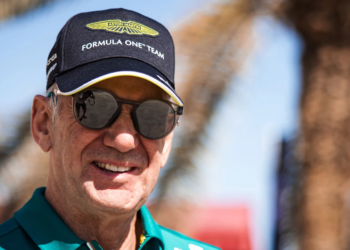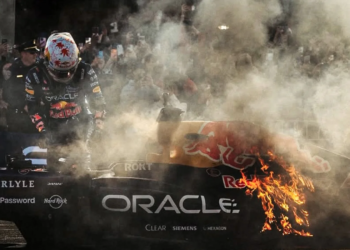Formula 1’s new owners have been slowly but surely changing the way they communicate with the media.
No longer are we being fed innuendo and rumour from questionable sources who claim to be “in the know” but rather the new senior management are being far more open with regard to main stream news outlets and we are now hearing from the horse’s mouth rather than the previous emissaries.
In his role as Bernie Ecclestone’s replacement at the helm of F1, Chase Carey is becoming more open about how the sport should be run in the future. But in an interview with the Press Association today, Carey has started to comment on how he feels the sport was run prior to his arrival, and some of the comments are not kind.
Clearly he feels that Mr E played things too close to his chest and rather than be progressive, his management style was to reject ideas, rather than explore them.
"I want to be saying 'yes' to a whole lot more," explained Carey. "What is the value of having an idea if the answer to everything you want to do is 'no'? All it does is create frustration.
"There are an array of things that weren't done that needed to be done. We felt it was a sport that for the last five or six years had really not been managed to its full potential or taken advantage of what was here.
"All of us make mistakes and nobody is perfect.
"Bernie took a business from decades ago and sold it for eight billion dollars. He deserves all the credit in the world for what he has done.
"But in today's world you need to market a sport. We were not marketing the sport."
In explaining why Sean Bratches had now been brought in to manage the commercial aspects of the sport, he was quick to point out that under the old CVC Capital Partners ownership; they were only interested in short-term gain rather than long-term solutions.
Despite Liberty only being in control for a few months, Carey wants a plan to set out where the sport will be in five years.
"It has been three months and we have been very clear that one of the things the sport has not been served well by is a continued short-term focus, and what we are going to do next week," added the new F1 CEO.
"We care more about where the sport is going to be three years from now than three months from now. Bernie was always very focused on the short term, and our focus is on building long-term value.
"Some of the decisions that were made needed to have a better process to think through. The current engine, for example, ended up being too complicated, too expensive, and lost some of the sound that added to the mystique of the sport.
"We will do things and some things take time – you are not going to have a new engine in two months because if you tried to do that you are going to do more harm than good. We want to make sure we have the tools to manage the business as opposed to throwing things out there so somebody has a media story."






Discussion about this post